Last updated on February 22nd, 2024
Knowing how to fix a radiator leaking water could save you a few quid, but if it’s leaking water from the actual panel through rust, then you will most likely have to remove the radiator and replace it.
I have been repairing and replacing radiators for over a decade and have learned a lot along the way.
Radiator Leaking Water From the Bottom
The most common radiator leaks I come across by far are when the radiator is leaking water from the bottom.
This is either from a leaking radiator valve (most common) or through rust or pinhole leaks from the actual radiator panels.
Leaking Radiator Valve
If your radiator is leaking water from one of the valves, you can sometimes fix a leaking valve by tightening the nut where the leak is coming from with an adjustable spanner.
Or you might need to replace the radiator valve.
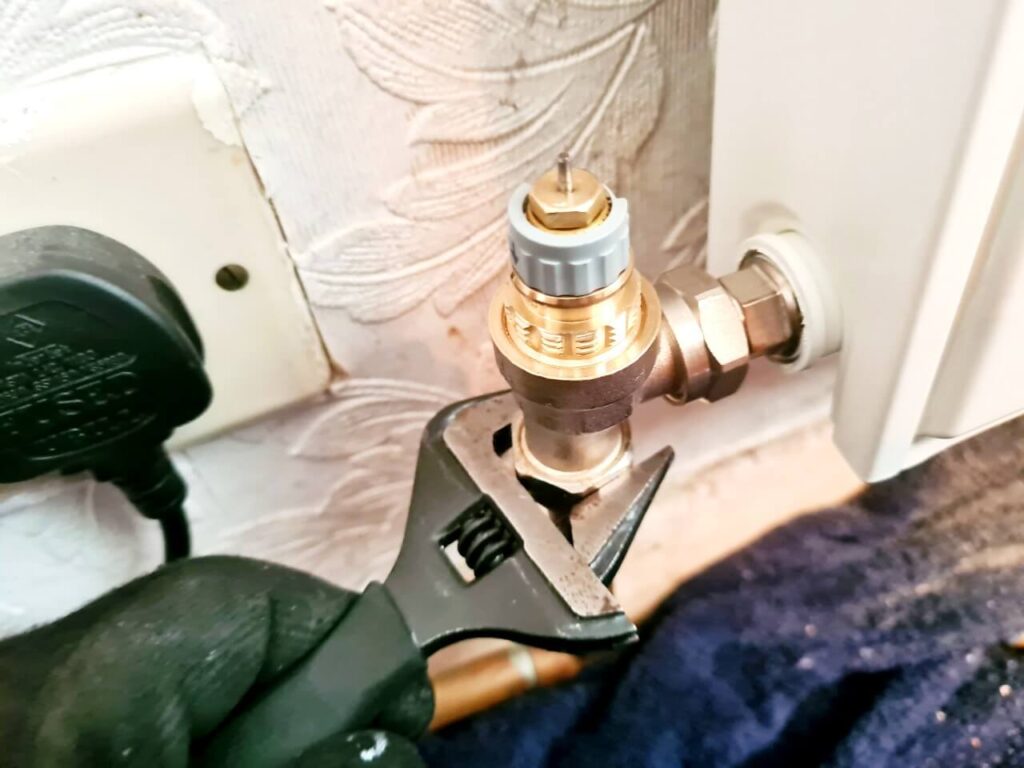
Leaking Radiator Panel
A radiator leaking water from the bottom of the panel means you should probably replace the radiator as soon as possible.
Leaking From the Top
If your radiator is leaking water from the top, this is normally coming from the radiator bleed valve or the blank nut.
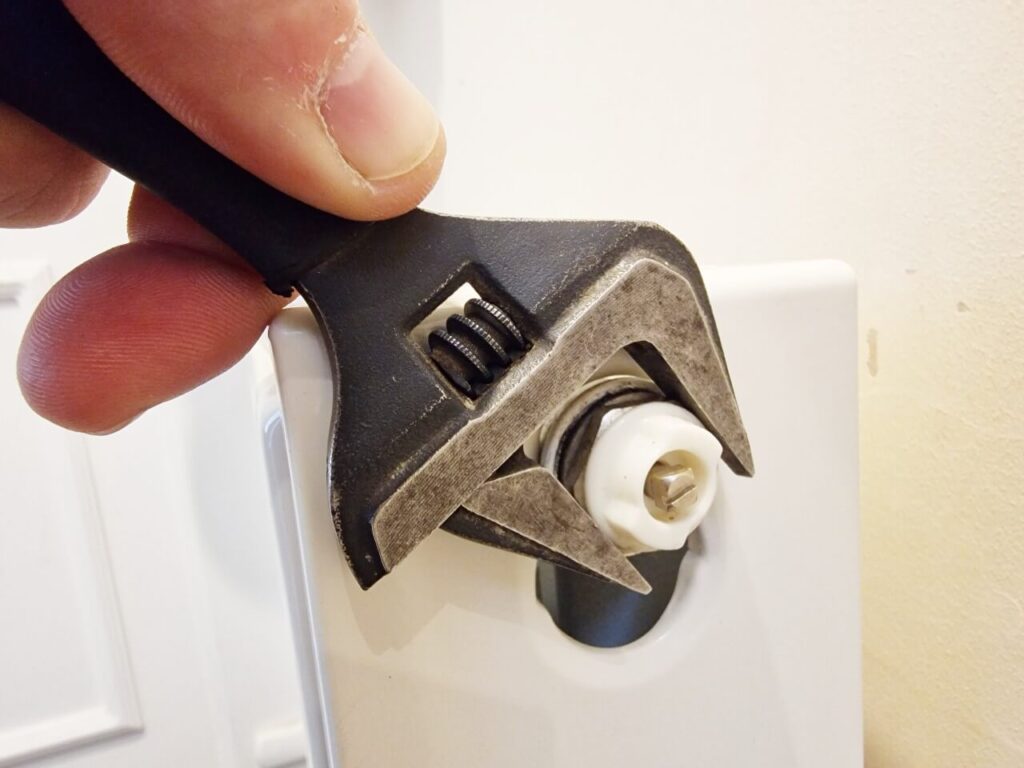
This can usually be fixed by following this process:
- Drain the central heating system (or just the radiator)
- Remove the bleed valve or blank nut with an adjustable spanner
- Clean the rust and debris off the threads with a small stiff or wire brush
- Add some jointing compound to the threads (or PTFE tape)
- Refit nut
- Bleed the radiator
If this does not work, you might have to replace the radiator bleed valve or blank nut.
How to Turn Off a Radiator When it Leaks
You should always turn off a radiator when it leaks, as the leak should stop (not always) when the radiator is turned off and isolated from the rest of the system.
The leak will not stop straight away when the radiator is turned off, you must give time for the pressure to drop low enough.
To turn a radiator off when it leaks, you need to turn both of the valves clockwise as far as they will turn.
Apart from quarter-turn radiator valves (very rare), It doesn’t matter what valves they are, they should all be turned clockwise many times until you can’t turn them anymore.
Turn Off Thermostatic Radiator Valves
On thermostatic radiator valves (TRVs) you will see a setting which says either ‘0’ or ‘off’. This will be after it’s turned clockwise.
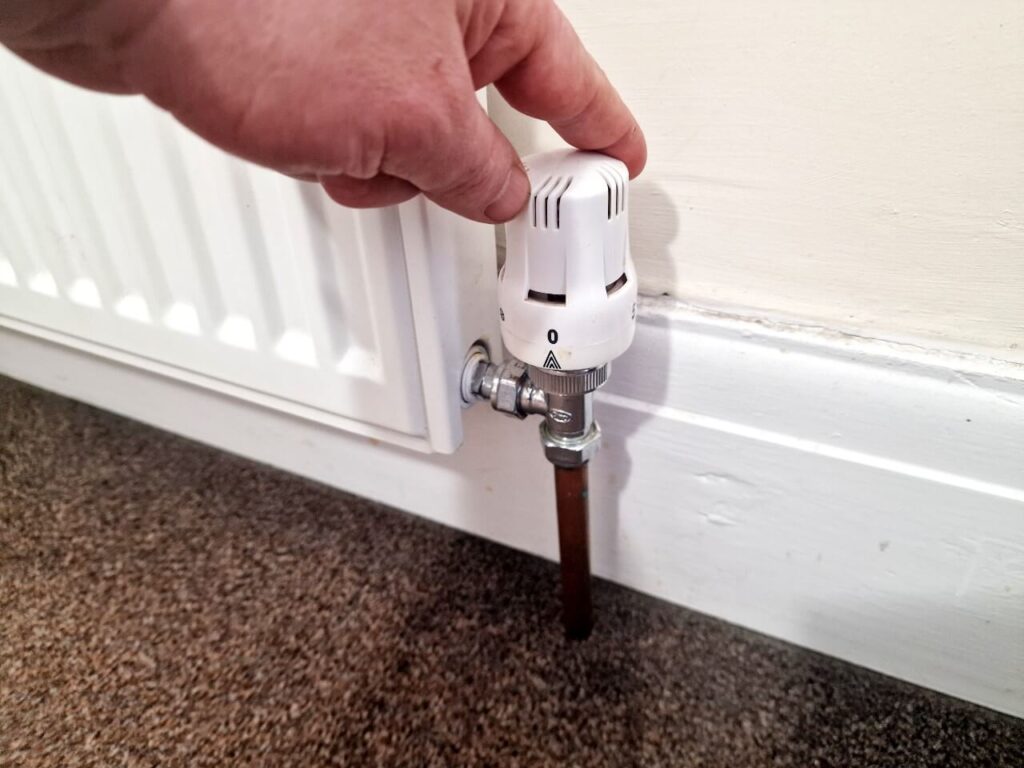
Turn Off Manual Radiator Valves
On manual radiator valves with knobs, you can turn them with your hands. You must turn them as many times as you can until you can’t turn them anymore.
If they keep turning forever, then the plastic handle is probably damaged inside, you will need to remove the handle and use a tool to turn it like a lockshield valve.
Turn Off Lockshield Valves
To turn off a lockshield radiator valve you must :
- Remove the spindle cover either with your hand or a screwdriver if it has a screw
- Grip the spindle with some water pump pliers and turn it clockwise as far as it will go
- Refit the cover
Some (Danfoss) radiator lockshield valves will need a 6 mm hex key (Allen key) to open and close them.
How to Fix a Pinhole Leak
Pinhole leaks can be caused by soldering flux being inside the central heating system, which wasn’t flushed out properly after soldering was done on the system’s pipe work.
To attempt to fix a pinhole leak in a central heating radiator is not worth the hassle in most cases, as it rarely works for long, if at all.
Pinhole leaks are caused by rusting or something eating away at the metal, so you are probably better off flushing your central heating system and replacing the radiator.
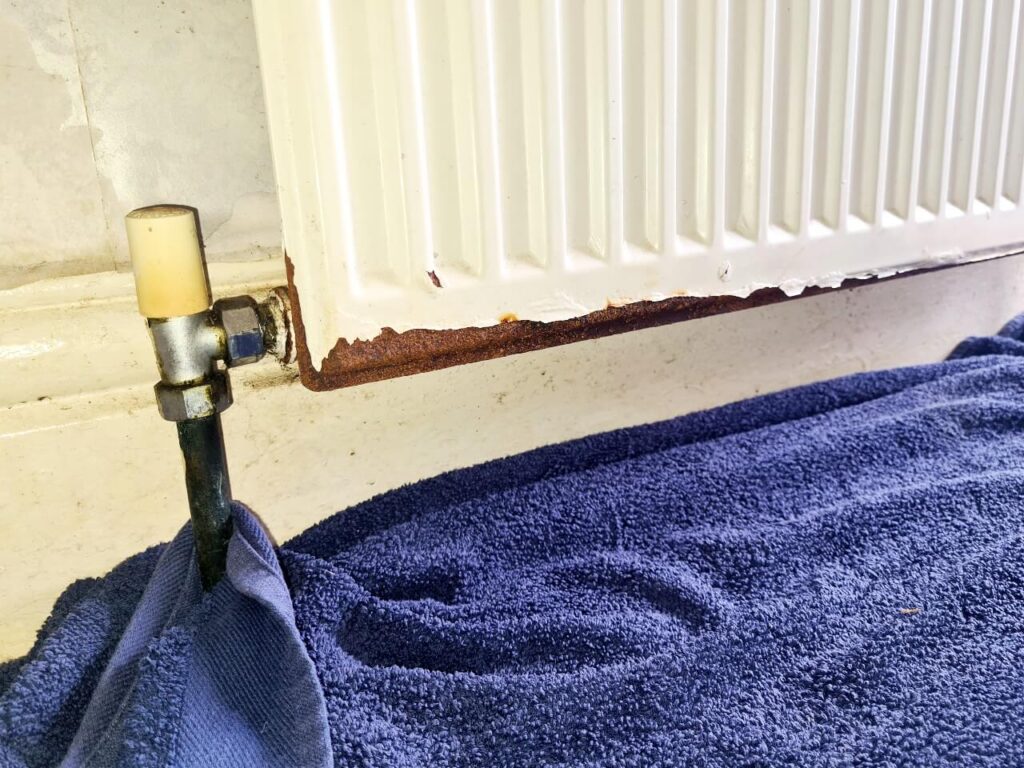
If you want to fix a pinhole leak in a central heating radiator, then you can try adding a leak sealer to the system and leaving it for a few days to see if that works. This is the simplest way to try.
Failing that, you can use a putty or epoxy resin by draining the central heating system or radiator, drying it then adding the resin and waiting for it to set then refilling the system to see if it’s worked.
Leaking Radiator Pipe
A leaking radiator pipe should be fixed by cutting out the section of the leaking pipe and replacing that section using two straight coupler fittings.
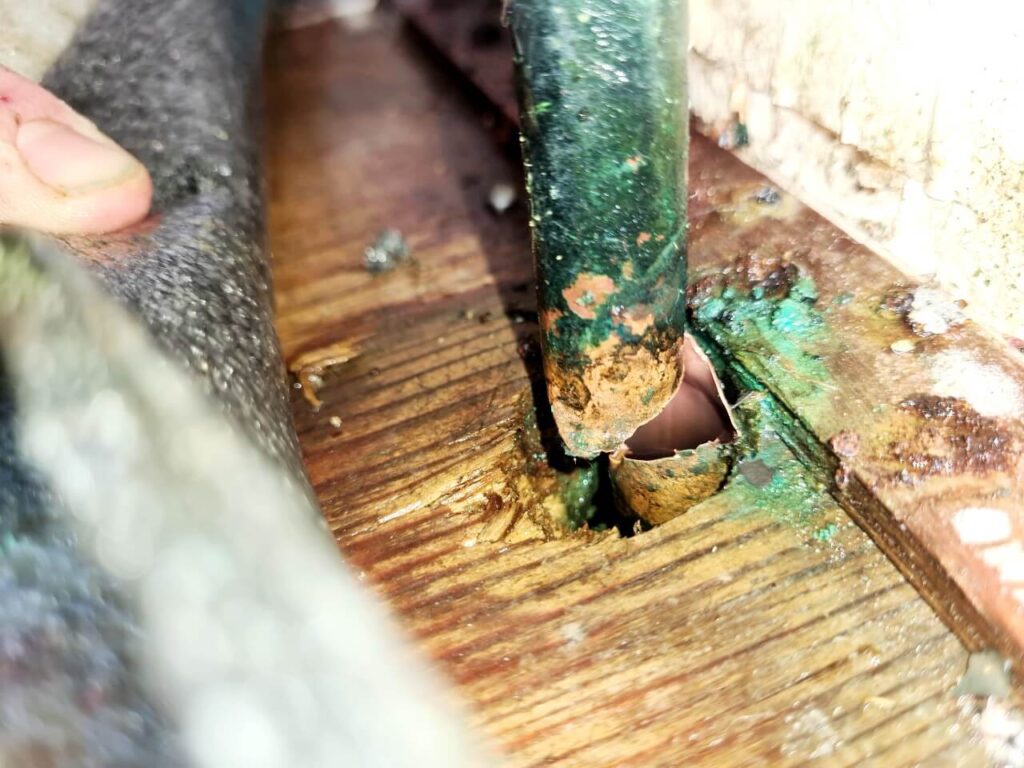
You can also buy copper patches to fix leaking copper pipes. You will need to be able to solder to do this, so unless you have all the soldering gear needed, then replacing the section of pipe will be the best solution.
Summary
Stopping a radiator leak can be impossible when the leak is coming through rust or a pinhole leak and you will most likely need to replace the radiator.
When the leak is on the radiator valve or bleed valve this can be a simple nut tightening or straightforward replacement.
Feel free to ask me any questions in the comment section below and I’ll try my best to help.
Please share this post if you find it helpful.
FAQs
Why are my radiators leaking?
Your radiators could be leaking for many reasons. Here are some of the most common problems I come across when being called out to radiator leak jobs:
Rusting radiators are caused by wet rooms, typically in bathrooms from pee or wet towels.
Loose nuts on radiator valves or bleed valves.
Pinhole leaks can be caused by soldering flux in the central heating system that wasn’t flushed out properly.
Can radiators leak gas?
No, radiators can not leak gas unless some idiot has accidentally piped up the gas supply to the central heating system. You can get a funky smell from inside radiators sometimes, but it won’t be gas.
How does a radiator leak sealer work?
Radiator leak sealer works by a liquid being poured into the central heating system. This leak sealer circulates in the system and eventually starts coming out where the leak is.
The leak sealer is then exposed to air and solidifies, causing the leak to stop.
Can a leaking radiator be repaired?
Yes, radiator leaks can be repaired. But, if it is leaking through rust or a pinhole leak, then you should replace the radiator and save yourself the headache and expense of trying to prolong the life of the radiator.
Is a leaking radiator dangerous?
No, a leaking radiator is not dangerous. It can cause water damage to floors and walls etc if gone unnoticed for a long time but it’s not dangerous.

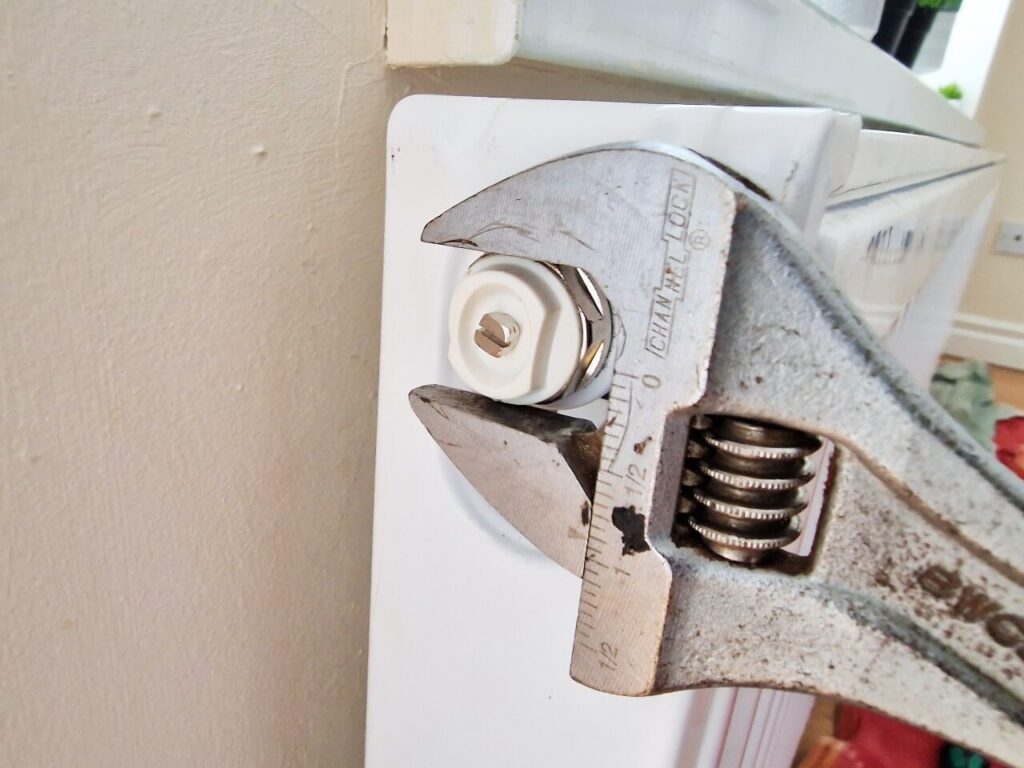

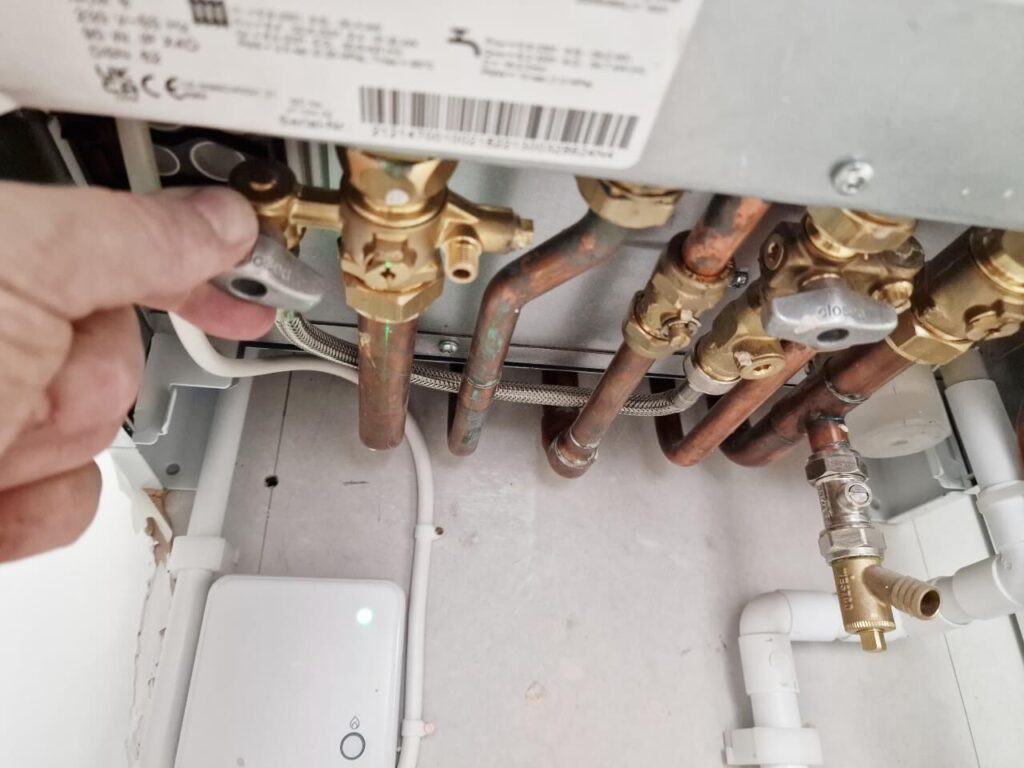
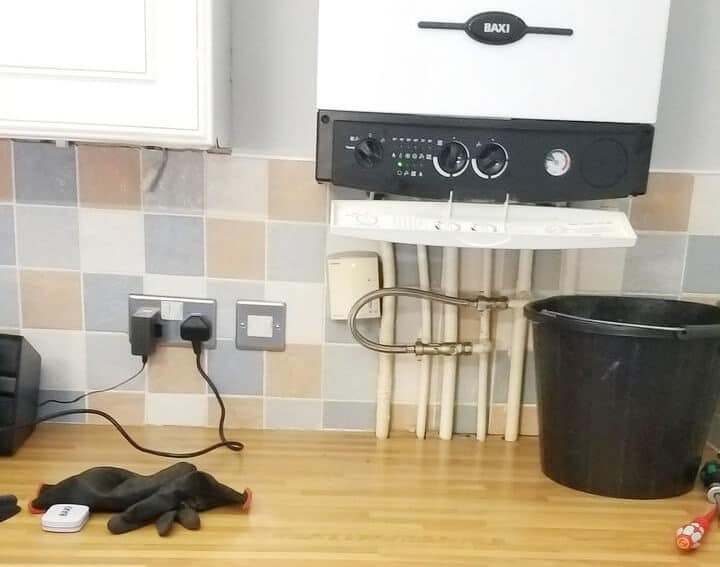
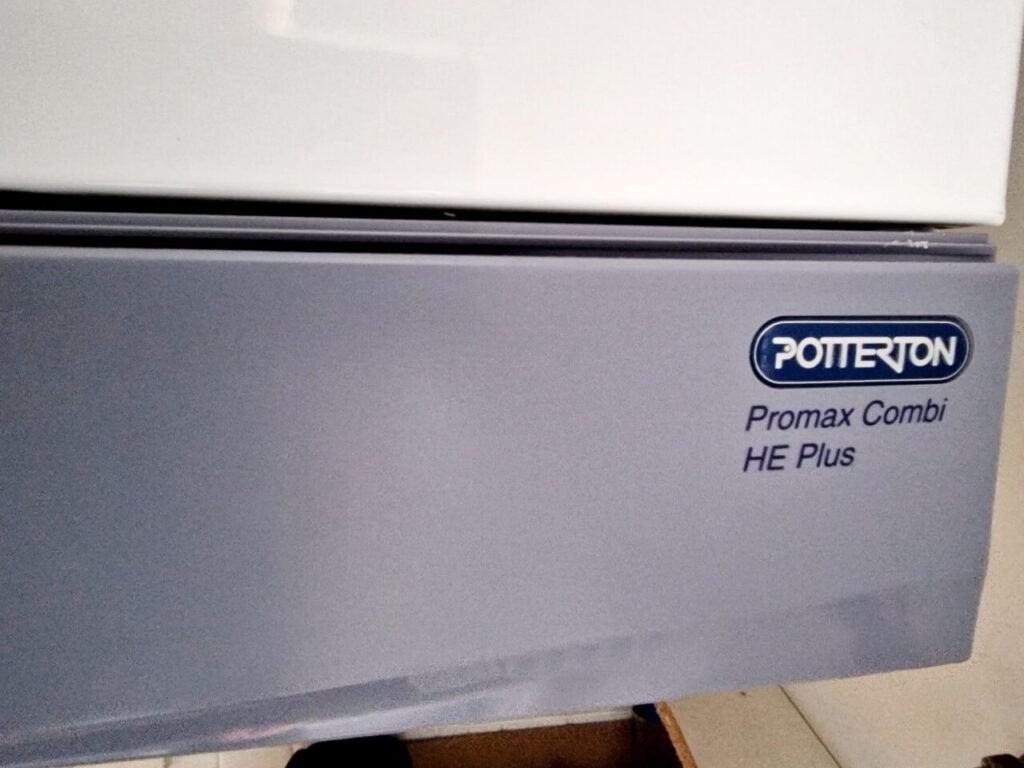
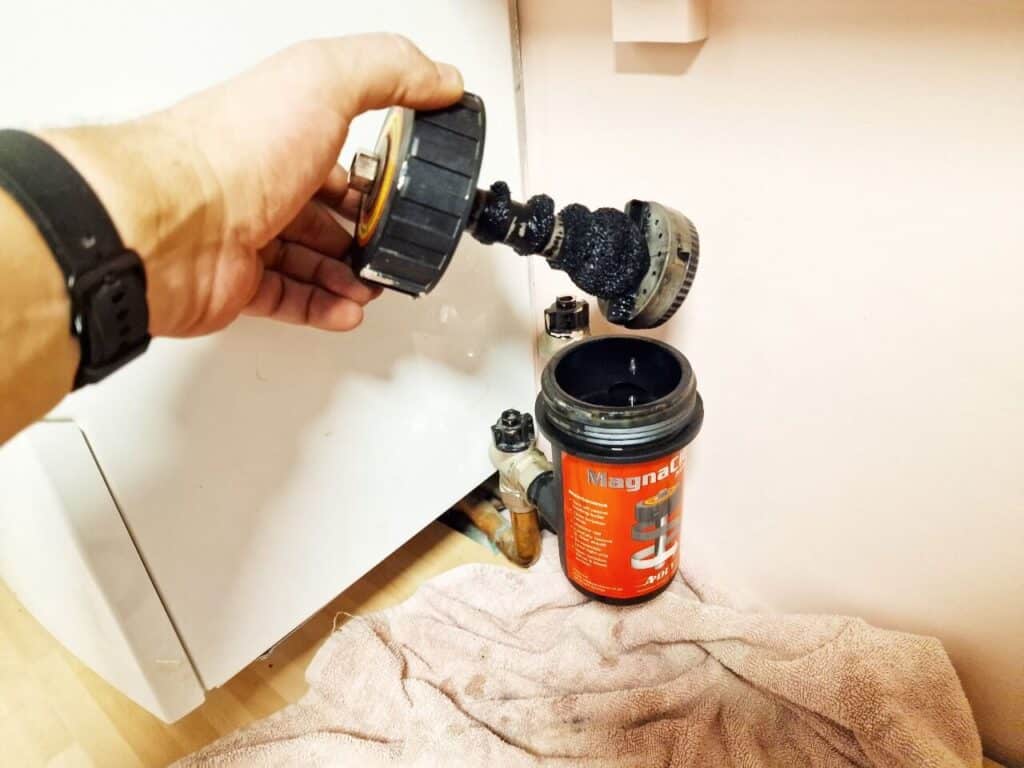
My radiator leaked around 3 litres of water before I could shut off the water to it.
Is it safe to use my heating now or do I need to wait until the system is balanced again?
Thank you!!
Hi Mary,
It’s safe to use your heating but if it doesn’t work, you should check the boiler pressure to see if it’s below 1 bar and if it is then top the pressure up to between 1 – 1.5 bar.